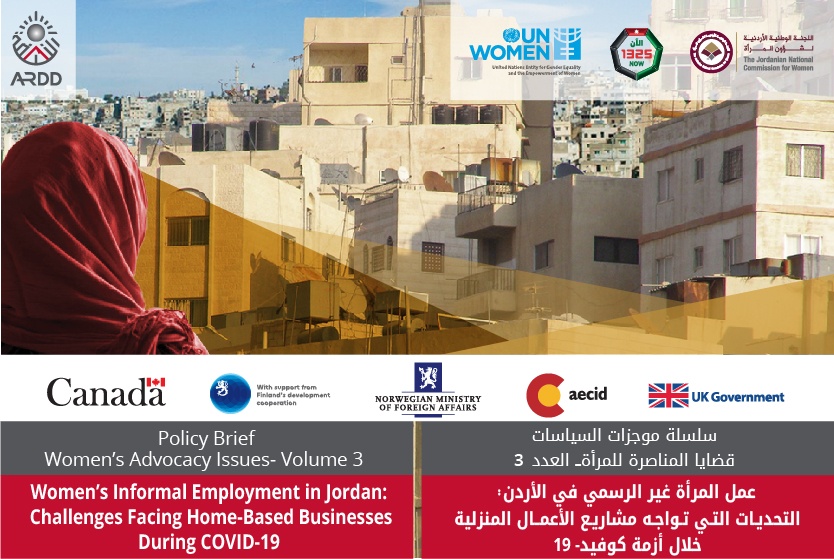Jordan has moved into the second year of the COVID-19 crisis. The lockdowns, the global economic slowdown, trade disruptions, and the suspension of international travel have “exacerbated existing structural weaknesses in the economy and unresolved social challenges and put pressure on the country’s fragile macroeconomic stance.” Assessments conducted during the first wave of the pandemic revealed that employment losses and income reductions due to restrictions had had significant effects on households in governorates of Jordan.
COVID-19 and the policies put in place to curb the spread of the pandemic worsened the situation, especially for women, as they lost income, were confronted with increasing responsibilities at home due to the closure of schools and caring for those infected and faced further risk of physical or psychological violence due to heightened tensions within the household and/or increased food insecurity. Women working in the informal sector, such as unregistered home-based businesses (HBBs), encountered challenges that took the form of termination of work and loss of major clientele. CSOs, in particular women-led CSOs, witnessed negative consequences of the COVID-19 pandemic on women working informally, as well as some trending coping measures that many women adopted to stay afloat.
This brief explores women’s participation in the informal labor market, with a focus on home-based businesses before and during the COVID-19 crisis. The brief offers policy recommendations guided by insights from women-led and women-focused civil society organizations (CSOs) on how to address the economic impact on informal women-led home-based businesses in Jordan.
This brief comes as part of a series of policy briefs ARDD is producing within the framework of the project “Strengthening the Capacities of Women-led CSOs in Evidence-Based Advocacy and Women, Peace, and Security (WPS) Agenda,” supported by UN Women with the generous funding of the Governments of Canada, Finland, Norway, Spain, and the United Kingdom. ARDD acknowledges the support of the women-led civil society partners involved in the project implementation and thanks to the representatives of the organizations for their meaningful contribution.


